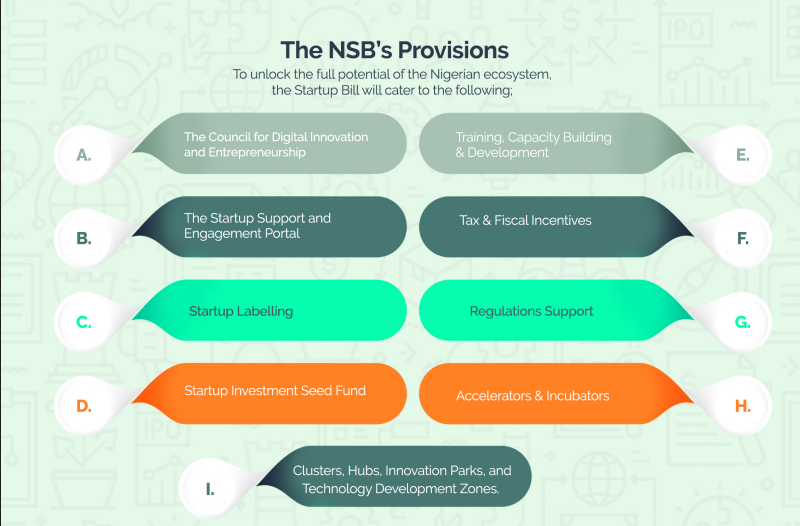Nigeria Startup Bill awaits Presidential assent following legislative approval
The Nigeria Startup Bill has passed third reading at the House of Representatives today (July 27, 2022).

The Nigeria Startup Bill has passed third reading at the House of Representatives today (July 27, 2022).
"A Bill for an Act to Establish National Council for Digital Innovation and Entrepreneurship, Provide for the Creation and Development of an enabling environment for Technology-Enabled Startups in Nigeria; and for Related Matters," the House tweeted.
Recall that the Nigerian Senate passed the Bill last week (July 21, 2022). The Bill is now awaiting Presidential assent. "Implementation and state adoption of this bill will require that we continue to engage and collaborate on execution. Its success is dependent on the participation of all stakeholders of the ecosystem which includes lawmakers, policymakers and practitioners," Oswald Osaretin Guobadia, the Senior Special Assistant to the President on Digital Transformation said.

Currently, Out of Nigeria's 36 states and the FCT, only Kaduna and Lagos states have publicly indicated interest to domesticate the Startup Bill (at the time of this report). However, Yobe, Ekiti, Edo, and Anambra are also considering the domestication of the Bill, according to the Nigeria Startup Bill team.
Related Article: Why does the Nigeria Startup Bill matter?
The Nigeria Startup Bill project is a joint initiative by Nigeria’s tech startup ecosystem and the Presidency to harness the potential of the country's digital economy through co-created regulations. The Bill will replace the National Digital Innovation Entrepreneurship and Startup Policy [pdf], a proposal that was going to be Nigeria’s approach to digital innovation.
Several ecosystem commentators have expressed confidence in the Bill especially because of its Big Tent approach. The Big Tent approach refers to the realization that the passing of the Bill requires the involvement of relevant parties in the Nigerian startup ecosystem (startup founders, employees, investors, professionals such as lawyers, the academia and other relevant bodies) and the government (Ministries, Directorates, and Agencies [MDAs], regulators, and policymakers).
Nigeria ranks 131st out of 190 on the World Bank’s ease of doing business rankings, architects of the startup bill expect it to effect change in four aspects: capital, regulation, infrastructure, and talent.
"Nigeria is also broadly a tough place to do business, both for established companies and startups. By creating transparency in rulemaking, taxes, and fees and by encouraging the development of essential infrastructure, the bill will attempt to make Nigeria an easier place to start and grow a business," Tomiwa Aladekomo, a member of the Presidential Advisory Committee told Benjamindada.com.
In a report by TechHive and Ikigai, the Nigeria Startup Bill ranked the best after it was compared to the other four startup legislations in Africa (Senegal, Tunisia, Ethiopia and Kenya) in relation to their scope, label and governance, incentives and enforcement.






